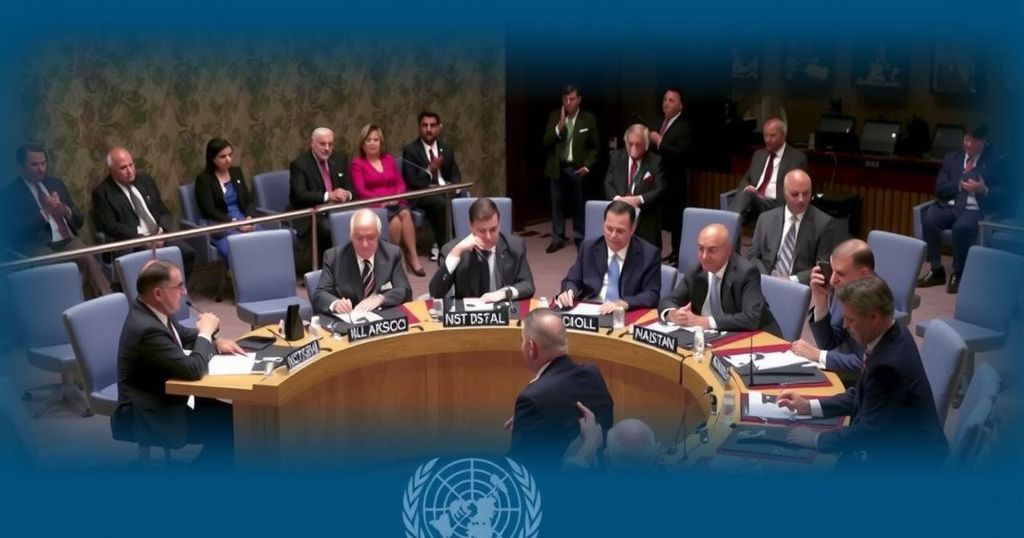Pakistan Embarks on New Term as Non-Permanent UNSC Member

On January 1, 2025, Pakistan began a two-year term as a non-permanent member of the UNSC, its eighth term overall. It secured 182 votes and will preside over the council in July 2025. Pakistan will also join the ISIS and Al Qaeda Sanctions Committee. Ambassador Munir Akram highlighted Pakistan’s focus on global peace, security, and the Kashmir issue during its tenure, emphasizing a commitment to combating terrorism and promoting international cooperation.
On January 1, 2025, Pakistan commenced its two-year term as a non-permanent member of the United Nations Security Council (UNSC). This significant appointment marks Pakistan’s eighth tenure within the 15-member council, succeeding Japan in representing the Asian region. Ambassador Munir Akram has reaffirmed Pakistan’s dedication to taking on an “active and constructive” role in addressing pressing global challenges throughout this term, which will conclude on December 31, 2026.
Pakistan secured its seat after receiving 182 votes in a competitive election held in the 193-member General Assembly, successfully exceeding the required two-thirds majority. During its term, Pakistan is expected to preside over the UNSC in July 2025, where it will play a pivotal role in shaping the council’s agenda.
As part of its responsibilities, Pakistan will also serve on the Islamic State (ISIS) and Al Qaeda Sanctions Committee, which is tasked with designating terrorist groups and enforcing sanctions. Historically, Pakistan has previously held this UNSC position during terms in 2012-13, 2003-04, 1993-94, 1983-84, 1976-77, 1968-69, and 1952-53, demonstrating its longstanding involvement in international peace and security efforts.
Ambassador Akram emphasized the current geopolitical turbulence, characterized by heightened competition among major powers and ongoing conflicts across Europe, the Middle East, and Africa. He highlighted the importance of Pakistan’s contribution to promoting peace, resolving disputes, and combating terrorism.
Moreover, Pakistan’s term aligns with vital regional concerns, particularly the Kashmir dispute and political instability in Central and West Asia. Ambassador Akram reiterated Pakistan’s commitment to prioritizing the Kashmir issue and urged the international community to take concrete steps towards addressing it.
The United Nations Security Council (UNSC) is a vital organ of the United Nations, responsible for maintaining international peace and security. Among its 15 members, five are permanent members with veto power, and ten are elected as non-permanent members for two-year terms. Pakistan’s involvement in various previous terms has been marked by its advocacy for peace, security, and the promotion of multilateral cooperation. The current geopolitical landscape, characterized by conflicts and rising tensions, necessitates the active participation of nations like Pakistan in steering global policy and regional stability.
In conclusion, Pakistan’s commencement of its two-year tenure as a non-permanent member of the United Nations Security Council signifies its ongoing commitment to global peace and security. By actively participating in council discussions, presiding over sessions, and engaging in crucial committees, Pakistan aims to address pressing international challenges, promote multilateral cooperation, and highlight regional issues such as the Kashmir dispute. Ambassador Munir Akram’s assertions of Pakistan’s constructive role underscore the nation’s dedication to fostering stability in a turbulent geopolitical environment.
Original Source: currentaffairs.adda247.com








